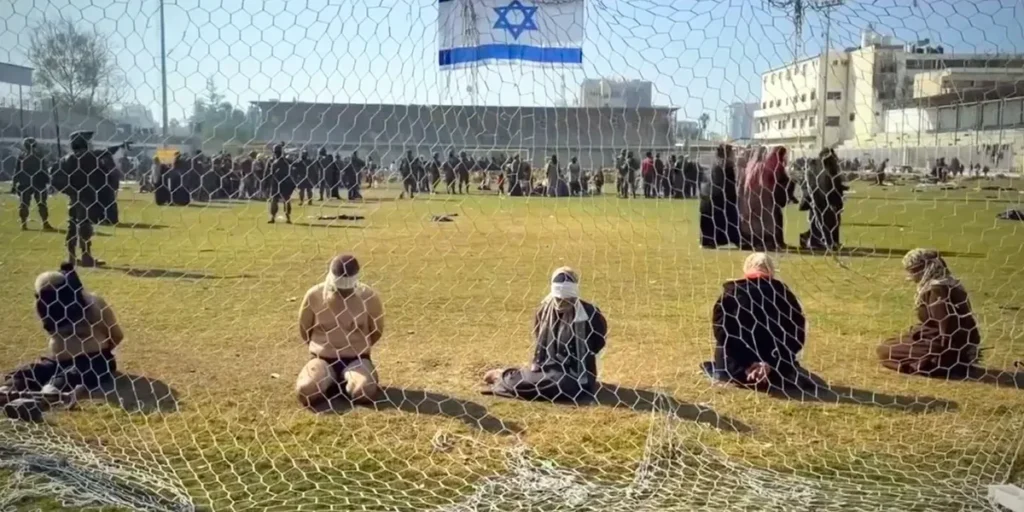An ancient proverb says, “To kill someone is to incur punishment, except in a group.” Even though more than half a century has passed since the enactment of the United Nations Charter and the 100th anniversary of the establishment of National Olympic Committees in Paris in 1894, the claim that sport remains apolitical remains a challenge. is presenting.
In a notable action in September 2023, the International Olympic Committee (IOC) filed a lawsuit against Russia for violating international peace and subsequently banned Russia from participating in the Olympics. The move echoes an earlier decision to exclude the Russian soccer team from the Qatar 2022 World Cup qualifiers.
Olympic participation is subject to IOC approval, which can be withdrawn at its discretion, often without just cause. This power was especially exercised during the war in Ukraine, when the occupation of the eastern regions led to the seizure of the offices of the National Olympic Committee of Ukraine. At the same time, concerns arose about the politicization of the Olympics by countries like Russia. In Russia, sporting victories have been used to fuel expansionist policies and raise nationalist fervor. Despite athletes' intentions, their performance can unintentionally support these ideologies. This was exemplified when Russia invested an unprecedented $51 billion (equivalent to the cumulative cost of all previous Winter Olympics) in the 2014 Sochi Winter Olympics after the annexation of Crimea, but the IOC It remained conspicuously silent on both demands of the Crimea Agreement. Boycott the Olympics.
Given the IOC's position that violators of international peace should not participate in global events like the Olympics, the question arises as to why Israel is not subject to a similar ban. Historically, even in the absence of IOC intervention, host countries have exercised their right to impose sanctions on countries that undermine world peace, often with the support of international allies and civil society movements. The expectation that the IOC and other countries will block Israel's participation is rooted in historical conduct.
Questions have been raised about the consistency with which the IOC adheres to its standards.
For example, Belgium, which hosted the 1920 Olympics, excluded geopolitical adversaries such as Germany, Austria, Bulgaria, Hungary, and Turkey, and Germany's exclusion was extended until 1928. Similarly, Japan and Germany were not invited to the 1928 London Olympics. These decisions were taken voluntarily by the host country. However, the IOC itself has taken decisive measures, including barring South Africa from the 1964 Tokyo Olympics and maintaining this exclusion from the 1968 Mexico City Games until the fall of the apartheid regime in 1992. The IOC used similar grounds to exclude Afghan athletes during the Taliban regime. 2000 years of governance.
According to recent reports, Israel intends to send a large delegation to the upcoming Olympics. In this context, there is growing debate about the IOC's impartiality and the potential for international support to influence IOC policy. Questions have been raised about the IOC's consistency in adhering to standards, especially in light of allegations regarding the conversion of Elimukh Stadium in Gaza. Reports that the stadium would be converted into a detention center and interrogation center prompted calls for accountability and action. Additionally, the reported destruction of the Gaza Olympic Committee offices and the killing of a Palestinian athlete has intensified the debate over Israel's participation in the Paris Olympics. In light of these events, groups such as Amnesty International are stressing the urgency of investigating alleged Israeli war crimes in Gaza.
At the heart of the debate is the lack of solid principles for maintaining peace and resisting invasion and occupation. The idea that states that violate the sovereignty of other states should be excluded from the Olympics and other global sporting events as a reflection of the “community of nations” remains controversial. Based on this principle, some argue that the United States may have faced a ban from the Olympics due to its involvement in the Vietnam, Iraq, and Afghanistan wars, but in reality it is a sport that transcends politics. This means that thinking and “elimination of the wrong things'' are important. Olympic “nations” are more of an aspiration than a reality. Furthermore, it is noteworthy that the IOC has even penalized athletes who have expressed moral and humanitarian support for the Palestinian people, demonstrating the complex interplay between sport, politics, and ethics. .
If the IOC removed Russia from the Games for violating the Olympic spirit of peace, consistency would require scrutiny of all participants. This raises the question of whether it is appropriate for any state to compete without addressing its international obligations if it is accused by the International Court of Justice of serious violations.

